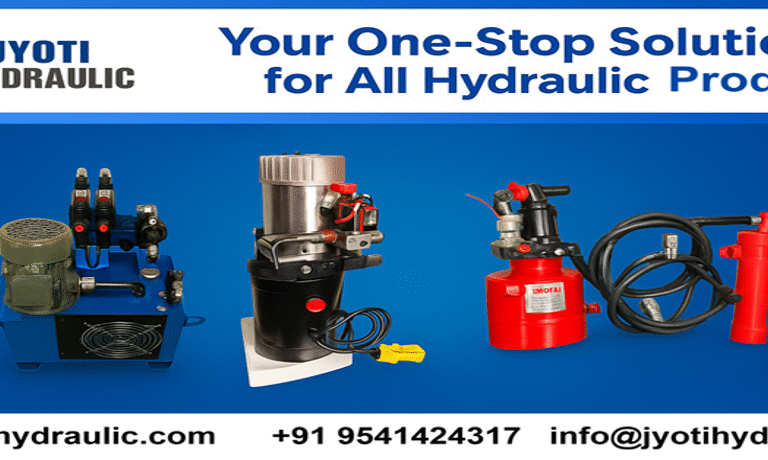Horizontal Manual Tying Baling Press
A Horizontal Manual Tying Baling Press is a highly efficient and versatile baling machine designed for industries that need continuous, high-volume waste compaction but prefer manual control over the tying process. This machine is ideal for recycling plants, corrugation units, paper mills, packaging industries, warehouses, printing houses, textile units, and material recovery facilities where waste such as OCC, cardboard, kraft paper, mixed paper, plastic films, textiles, and similar materials is produced in substantial quantities. Built with a powerful horizontal compression system, the machine allows continuous feeding of scrap while the operator manually ties the finished bale once the compression cycle is complete. This combination of continuous baling and manual tying offers the perfect balance between automation, cost efficiency, and operator control. Manufacturers like Jyoti Hydraulic design these machines with industrial-grade components to ensure durability, safety, and consistent performance even during heavy-duty operations.

Contact With Us
Feel free to write our team anytime
Overview
The core working principle of a Horizontal Manual Tying Baling Press revolves around its powerful hydraulic compression mechanism. Waste material is fed into the hopper manually or via conveyors. As the material enters the compression chamber, high-pressure hydraulic rams push the scrap forward, applying strong and uniform force to create compact, rectangular bales. When the bale reaches the preset length, the machine pauses briefly, allowing the operator to manually tie the bale using steel wires, plastic straps, or PP ropes. Once the tying process is complete, the bale is automatically ejected, and the machine resumes continuous compression. This workflow ensures high production efficiency, especially for industries looking for a cost-effective solution without fully automated tying systems.
Durability and engineering precision are defining features of this machine. Heavy-duty steel frames, reinforced compression chambers, wear-resistant liners, and high-output hydraulic cylinders ensure long operational life, even under demanding conditions. Machines manufactured by Jyoti Hydraulic include high-quality pumps, precision valves, and energy-efficient motors that maintain consistent hydraulic pressure during long hours of operation. The machine’s ability to adjust bale size, compression force, and feeding speed makes it suitable for handling different grades and densities of waste material. This flexibility ensures that industries can create bales that match their storage, resale, or export requirements.
One of the major advantages of a horizontal manual tying baler is the ability to handle large-sized and bulky materials more easily compared to vertical balers. The horizontal feeding design ensures smooth material flow, reduces operator effort, and minimizes blockages during compression. Since the tying is done manually, operators have complete control over the strength and pattern of strapping, which is especially useful when processing mixed or inconsistent waste materials. This system also simplifies maintenance and reduces operational costs by eliminating complex automatic tying components.
Safety and ease of operation are integral aspects of the machine’s design. The control panel allows operators to manage compression cycles, monitor pressure levels, and adjust operating parameters with ease. Safety interlocks, overload protection, emergency-stop features, and secure feeding doors ensure safe operation at all times. The machine’s open design near the tying section provides comfortable access for operators while maintaining compliance with industrial safety standards. Routine maintenance tasks—including lubrication, hydraulic oil checks, chamber cleaning, and inspection of electrical components—are straightforward, contributing to reduced downtime and long-term reliability.
From a business perspective, investing in a Horizontal Manual Tying Baling Press offers substantial operational and financial benefits. Continuous feeding improves workflow efficiency, reduces labor requirements for waste handling, and supports higher daily output. Dense and uniform bales occupy less storage space, reduce transportation costs, and offer higher resale value in the recycling market. For industries looking for a dependable, economical, and high-performing baling solution without the added cost of auto-tying systems, a horizontal manual tying press is an ideal investment. It supports sustainable waste-management practices by converting loose scrap into compact, recyclable units, helping businesses meet environmental goals while improving profitability.
Our Blogs
-
How to Calculate Load Capacity for Worm Gear Screw Jacks
Read MoreJyoti Hydraulic is a trusted name in the manufacturing of…
-
Cost-Effectiveness and Efficiency of Worm Gear Screw Jacks in Lifting Systems
Read MoreJyoti Hydraulic has been a trusted engineering name in the…
-
Top Baling Machine Manufacturers in India: Complete Guide for 2025
Read MoreJyoti Hydraulic, a trusted name in India’s hydraulic and industrial…



